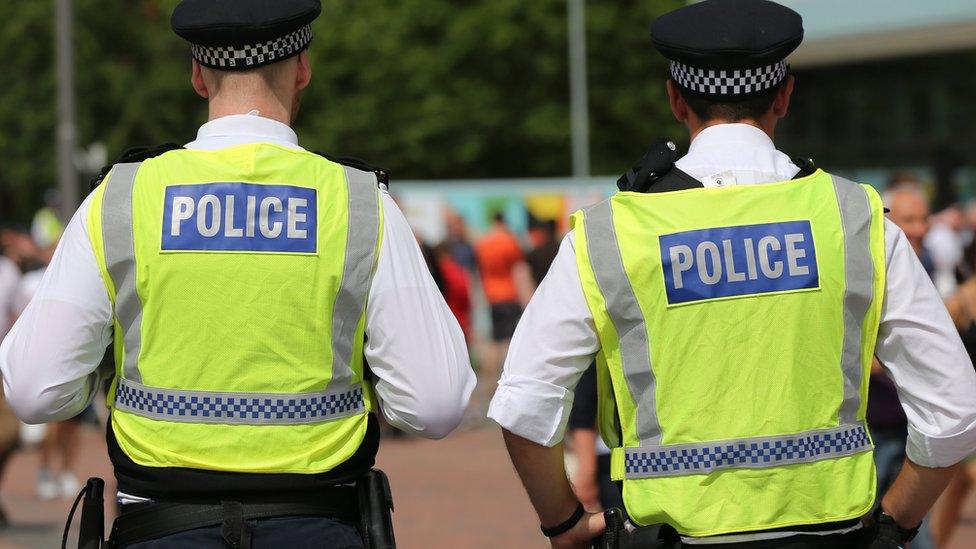Police funding: Cuts 'threaten ability to tackle mass riots'
- Published
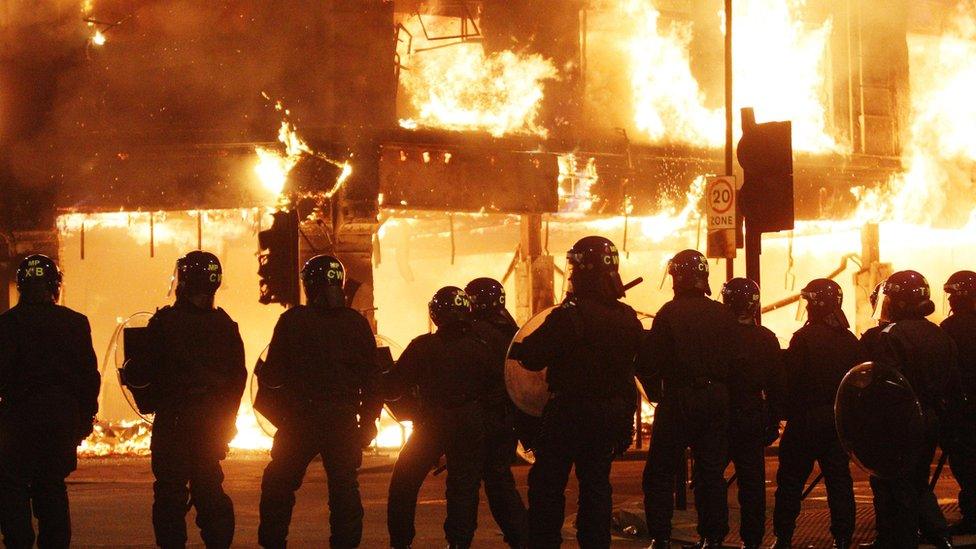
In August 2011, thousands of people rioted in London and elsewhere in England
Police in England and Wales would struggle to deal with riots on the scale of 2011 due to budget cuts, an officer who oversees funding has said.
Chief Constable Dave Thompson, of West Midlands Police, said the "strain is showing" after multiple terror attacks.
"We'd have real challenges in dealing with something like the 2011 riots again," he wrote on the National Police Chiefs' Council (NPCC) blog, external on Friday.
The home secretary has admitted that police resources are "very tight".
Amber Rudd told MPs on Thursday that the police response to attacks in Manchester and London required "additional work" in law enforcement.
She said: "I recognise the fact that we cannot carry on at that emergency level indefinitely."
Mr Thompson, finance lead at the NPCC, which represents police leaders, called on the government to "stabilise" police funding so it can tackle not only terrorism but other threats, such as cyber-crime.
The budget in 2020 will be the same as 2015 so "we'll have to use reserves" says West Midlands Police Chief
He told BBC Radio 4's Today programme that "policing is not raising a white flag, saying we can't cope".
"But the last few weeks, and our general resilience, is starting to show some red lights.
"Of course, policing will pull out all the stops to protect the public.
"But that strain on the system now is reaching a stage where we need a serious debate, as we go forward into the Budget in November, as to what the resources are for policing."
He wrote that the police face handling "a modern terror threat with 6,600 officers - a number that has already fallen by close to 2,000 and is set to fall further".
And he also said more investment was needed "with a growing cyber threat", adding: "Counter-terrorism policing is stretched and is in no place to deliver efficiency savings."
He said mainstream police resources were being diverted to fight terrorism, echoing warnings by Assistant Commissioner Mark Rowley that ordinary law enforcement faced "significant" funding risks after four terror attacks in as many months.

The riots of 2011
The violence that spread around England began at a peaceful protest demanding justice for a man shot by police in London.
Mark Duggan was killed in Tottenham on Thursday 4 August after police stopped the car he was a passenger in.
A protest march two days later sparked unrest and resulted in cars and shops in Tottenham being set alight, and looting taking place.
By the afternoon of Monday 8 August this began to spread to other areas in London, then to other major cities such as Birmingham, Nottingham, Bristol, Leicester, and several areas in Manchester and Liverpool.
More than 1,000 people were eventually jailed for the disturbances.

Mr Thompson said: "The firearms commanders, casualty bureau, custody staff, body recovery teams and uniformed officers patrolling crowded spaces that are so central to preventing and responding to a terror attack are paid for by core police funding."
He said that two-thirds of the policing effort after the Westminster Bridge attack was met by core police funding and not counter-terrorism.
He said: "If we are to sustain the protection citizens want and need, police leaders need to continue to reform, look hard at what needs to be done differently, and be bold and innovative in rising to the challenge.
"We need to have a conversation and a partnership with government that enables us to look forward to deal with the threats we face, and there are choices in there for government that we will give them."
This was not simply "asking for a blank cheque", he said.
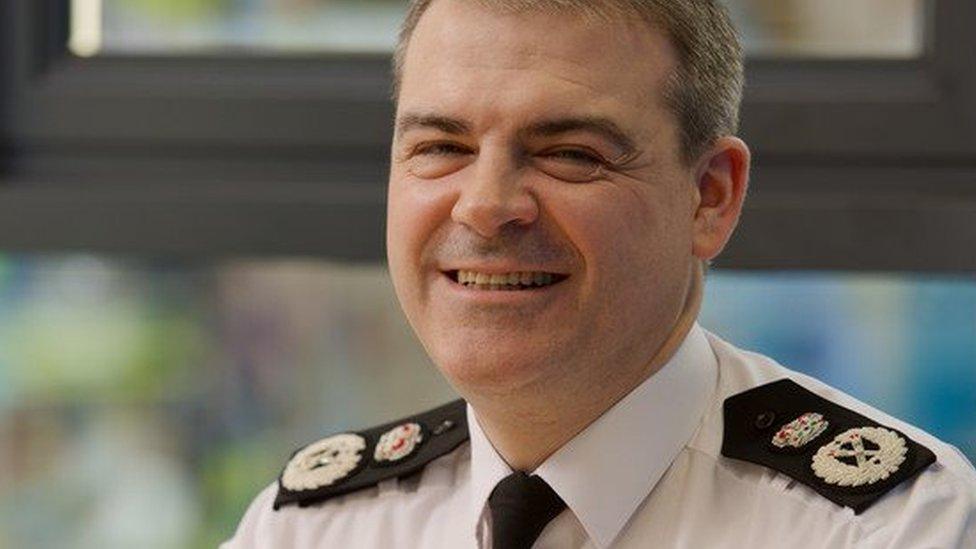
Mr Thompson said officers responding to terror attacks were paid for by core police funding
Mr Thompson's comments were backed by West Yorkshire Police Chief Constable Dee Collins.
"Our resources will only stretch so far and my concern is just how sustainable this in the long term, without an uplift in funding and resources," she said.
The Home Office has said it is in "detailed engagement" with police over planned funding changes.
A spokesman said: "The government is undertaking a period of detailed engagement with policing partners and independent experts on the police funding formula.
"New proposals will not be implemented without a public consultation."
Meanwhile, chief constables in England and Wales are to consider measures to allow more officers to carry guns.
A discussion paper is being prepared for a meeting next month in response to the terror attacks over the past three months.
The options include equipping more officers with Tasers, increasing the availability of armed response vehicles and specialist firearms officers - and giving some front-line police small firearms for personal protection.
However, there appears to be no appetite among senior officers for a fundamental change to policing practices by routinely arming all police.
- Published22 June 2017
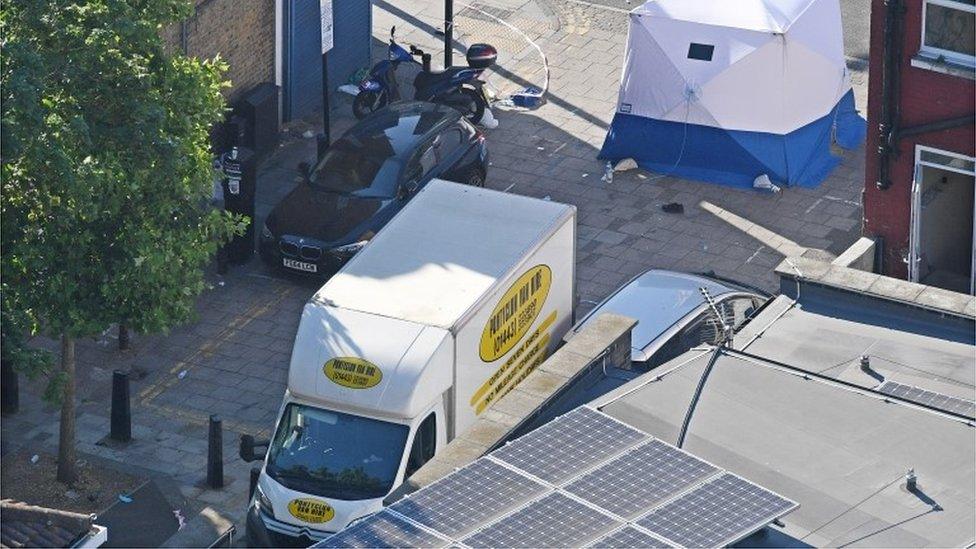
- Published20 June 2017
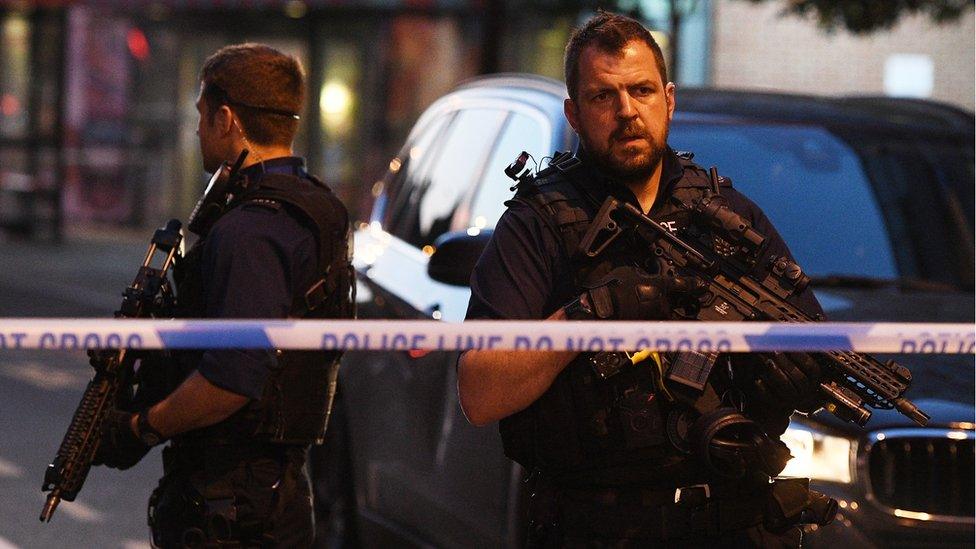
- Published21 June 2017
